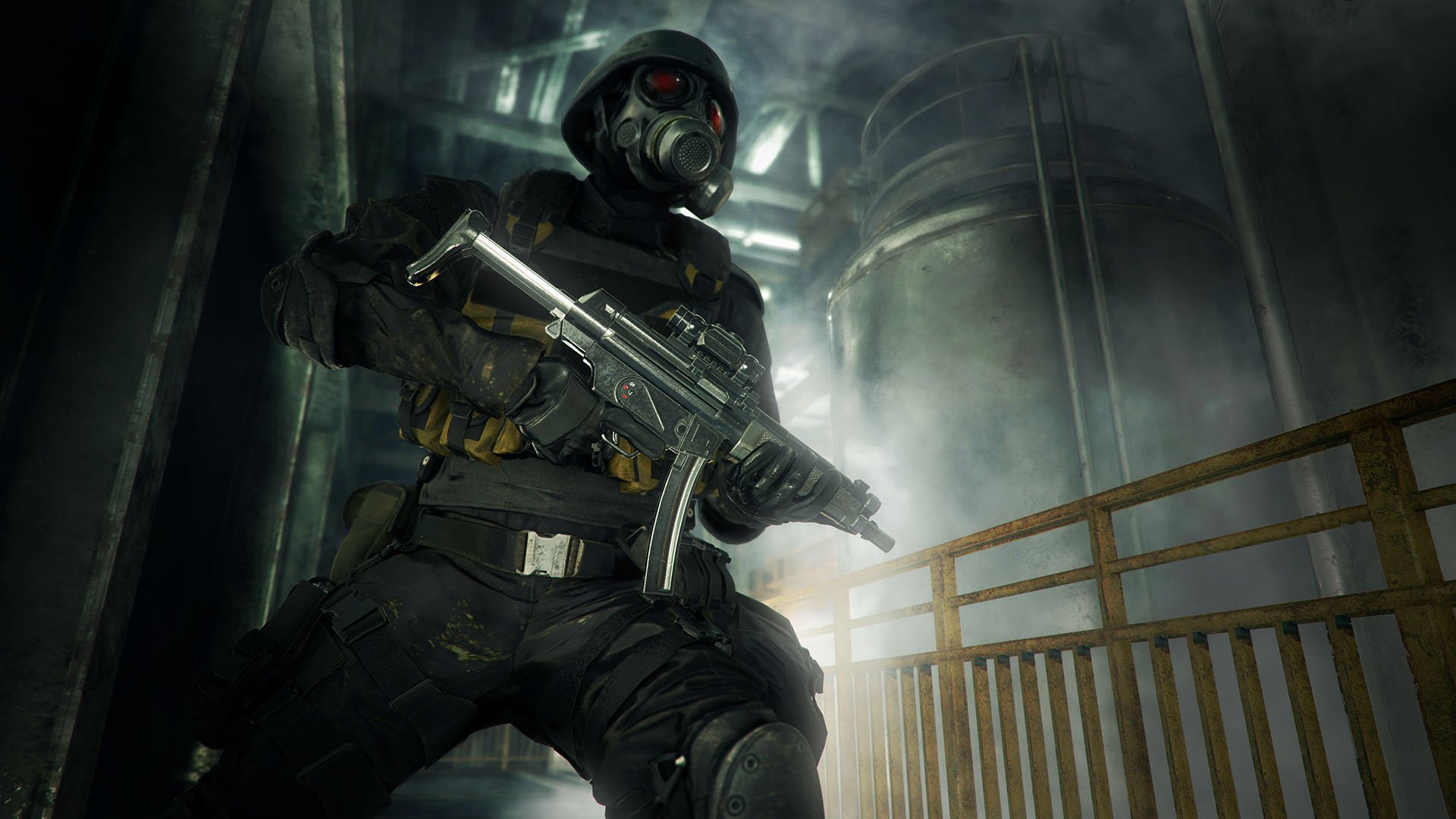Netflix axed Andrew Dabb’s Resident Evil series after the first season failed to convert the video game franchise’s legions of fans into enthusiastic viewers.
The series was intended to be a more faithful adaptation of Capcom’s horror franchise than Paul W.S. Anderson’s Resident Evil flicks starring Mila Jonavich, which were largely successful, but shared virtually no plot points with the source material.
Dabb’s eight-episode series follows scientist Jade Wesker as she attempts to find a cure for Umbrella Corporation’s deadly T-virus in post-apocalyptic 2036, while flashing back to the days leading up to the outbreak’s origin in 2022, when she and twin sister realize that their father, game franchise villain Albert Wesker, is working on a sinister drug in New Raccoon City.
Resident Evil dropped on the streamer on July 14 with very little fanfare, on the same weekend that “The Gray Man” came out. While Netflix heavily pumped up the release of Ryan Gosling and Chris Evans’ $200 million action romp, the show was only promoted on a fictional Umbrella Company website that was loaded with two trailers.
Dabb’s series debuted at No. 2 and managed to pull in 72.7 million hours’ worth of views in the first four days, but couldn’t compete with the first half of sci-fi smash hit Stranger Things’ fourth season the following week, and fell off the Netflix Top 10 charts after three weeks.
Poor critical reception and lackluster word of mouth hampered the show’s ability to draw in viewers. Rotten Tomatoes critics scored it 55%, while audiences were even more scathing with a 27% fresh rating.
“After the Anderson/Jovovich movies, it feels like the live-action adaptations are trying to figure out how to move on and do the same. Consider this another failed Umbrella experiment,” said critic Brian Tallerico.
“I have not been more disappointed in a show in a long time but maybe that was my mistake in assuming the ninth try in getting Resident Evil right would be the one to work,” added reviewer Alex Maidy.
While the show was lauded for Reddick’s portrayal of Albert Wexler as both a clueless father and a man with a disturbing secret, it suffered for coming off as a teen drama that some said was “too woke.” The scenes featuring young Jade and her sister Sienna were largely considered the worst part of the series, but made up the bulk of it.
The series was also hampered by nostalgia, or lack of it. The video game franchise was recently rebooted with 2017’s “Resident Evil: Biohazard,” and follow-up “Resident Evil: Village,” neither of which were included in the premise or even mentioned in Netflix’s new show.
The failure of Johannes Roberts “Resident Evil: Welcome to Raccoon City” didn’t help the odds of the series finding success with a streaming audience. The reboot was released during the height of the Omicron outbreak in November 2021, and despite being a chart-topping digital rental for three weeks, brought in less than $42 million.
Resident Evil was supposed to be the Capcom’s answer to the success of CD Projekt’s The Witcher adaptation, which was 2019’s most-in-demand television series globally across any streaming platform, and increased sales of The Witcher 3: Wild Hunt by 544% in December of the same year.
The series ended on a cliff hanger, and Dabb was so confident that the show would get a second season, that he was already developing it when the first season premiered, but Netflix canceled the series a month and a half later on Aug. 26 due to sagging ratings. As of publishing, no other streamers have swooped in to save the show.
With the failure of Dabb’s series and “Resident Evil: Welcome to Raccoon City’s” lackluster box office numbers, there are currently no other adaptations in the works. However, an adjacent documentary, titled George A. Romero’s Resident Evil from director Brandon Salisbury is in the works.
The documentary will focus on the film Romero worked on while he made then assistant Jason Bareford play through the entire Resident Evil game as he watched and wrote the script. Constantin Film, the owners of the game’s film movie rights, eventually decided to cut Romero out of the process.
Salisbury revealed that he shot the documentary at an abandoned mansion that was dressed to look similar to the iconic one from the original game, and got permission from Capcom and Constantin Film to shoot some of the scenes imagined by Romero. The project is currently slated to be released sometime in 2024.
On the video game front, Capcom recently announced that cloud versions of Resident Evil 2, Resident Evil 3, and Resident Evil 7 Biohazard are in development for Nintendo Switch, and will likely be released in 2022. Resident Evil Village Cloud is confirmed for an Oct. 28 launch date, and a “Winters’ Expansion” will be downloadable on Dec. 2.







